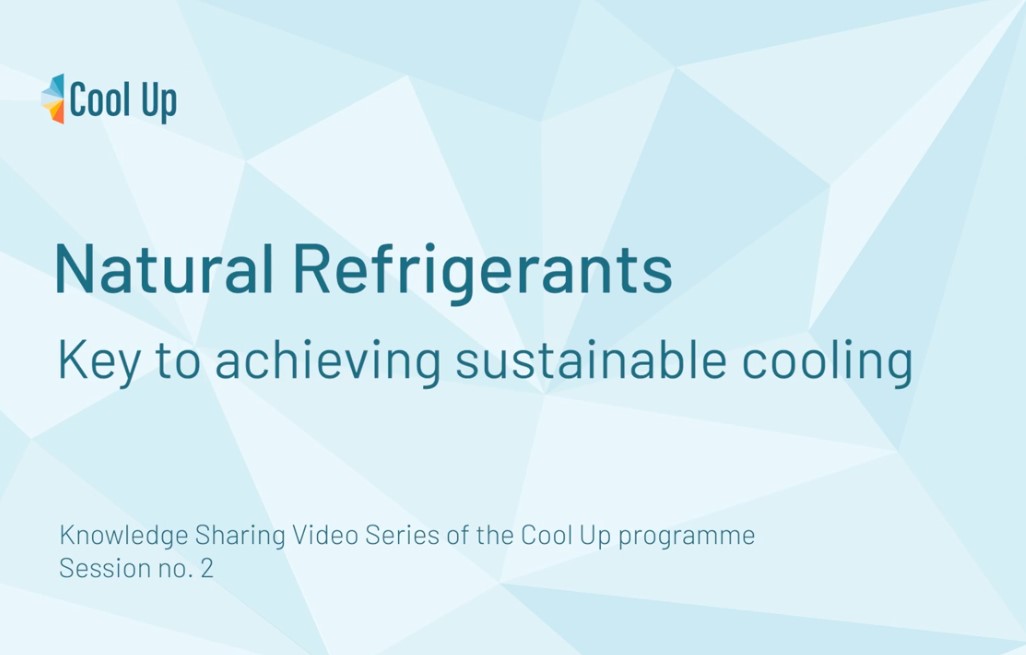News
Knowledge Sharing Session on natural refrigerants
In Cool Up’s second Knowledge Sharing Session, Guidehouse’s Mustafa Abunofal provided an overview of natural refrigerants and their key role in sustainable cooling. Watch the recording below.
In his presentation, Natural refrigerants: Key to achieving sustainable cooling, Mustafa first introduced the widely used and environmentally harmful synthetic refrigerants. He discussed their history and the role these refrigerants have played in climate change and ozone depletion.
Mustafa then dives into natural refrigerants, a term used to categorise non-synthetic substances that occur in nature’s biochemical process. This differs from synthetic fluorinated refrigerants, which are man-made chemicals. He outlined the characteristics, history, and applications of each of the following five natural refrigerants:
Carbon dioxide (R744):
- Non-toxic, environmentally benign, non-flammable
- Requires high pressure
- Mainly used as a refrigerant for commercial refrigeration and air conditioning
- Carbon dioxide transcritical reached over 35,000 installations globally as of June 2020
Ammonia (R717):
- High toxicity, environmentally benign, low flammability
- Highest efficiency among refrigerants
- Mainly used as refrigerant for industrial refrigeration and large applications
Hydrocarbons (R290, R600, etc.)
- Non-toxic, environmentally friendly, high flammability
- More efficient than HFCs and HCFCs in most applications
- More than 700 million residential based appliances used worldwide
- Cover a wide range of applications and do not focus on a certain segment
Air (R729)
- Non-toxic, environmentally safe, non-flammable
- It is inexpensive, readily available, safe, and has no harmful by products
- Air is mostly used as a refrigerant for low temperature refrigeration < -55 °C
Water (R718)
- Non-toxic, environmentally safe, non-flammable
- It is inexpensive, readily available, safe, and has no harmful by products
- Water is mostly used as a refrigerant for high temperature heat pump systems

